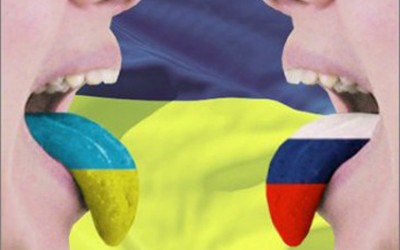With just a few words, Olena Yeremeyeva, producer of Ukrainian series and films on 1 + 1 channel, managed to become famous for a day! To achieve such fame and glory, she came up with nothing better than to share her thoughts on the suitability of the Ukrainian language in multi-genre film productions.
“According to our observations, melodramas shot in the Ukrainian language sound worse and are not as popular as comedies in the Ukrainian language. For the spring season, we are shooting in Russian because Ukrainian is so much more difficult to use in this genre. Actors still find it very difficult to work in Ukrainian. This increases production costs, which then affects the overall budget. It’s easier when we shoot comedies in Ukrainian.”
Ms. Yeremeyeva’s words caused an uproar in Ukraine. After all, we have a wonderful language that has been used in the film industry for decades and decades… and, since the days of Kotliarevsky, there has been no difficulty in using Ukrainian to speak about melodramatic topics. On the contrary, for two hundred years, Ukrainian literature and language have been accused of being excessively lyrical, even tearful. But, Ms Yeremeyeva’s position doesn’t really worry or bother me; as a matter of fact, I felt deep sympathy for her. No matter how hard one tries, trying to communicate with such people is like speaking to a brick wall, so I won’t argue with her or try to convince her. There’s no one to talk to here anyway…
In fact, Ms. Yeremeyeva’s statement reveals more about herself than about the Ukrainian language. It reflects the opinion of a whole stratum of people in our country who, for 30 years of independence, still live in the Soviet Union and think like a “homo sovieticus”. They may be successful and wealthy, people who fly to Europe’s capitals on weekends and consider themselves “advanced”, but in reality, they are ignorant “sovoks”. They are not ashamed because they are simply not aware of it. They are blind to the real world, people permeated by colonialism who believe that they themselves have created a unique life style. O sancta simplicitas! (literally “O, holy innocence!”, often used ironically in reference to another’s naïveté-Ed).
Ukrainians have been killed in wars; they were executed in Siberia, destroyed by famine and concentration camps; their national dignity was trampled on and humiliated, and they were purposefully cultivated as “mankurts” (a term that refers to an unthinking slave in Turkic mythology, similar to a zombie; people who do not remember where they come from or who they are-Ed). Such destruction and humiliation of anything Ukrainian was carried out intentionally and systematically over the centuries in order to create a “new Ukrainian individual” who would fight against his own country and culture, creating his own “arguments” and raison d’etre. One can only sympathize with such people, because each one of them has become a true “homo sovieticus”, raised on blood and illusions, which he believes to be true and sacred.
However, there is yet another aspect to this issue. After all, Ms. Yermeyeva and her colleagues – even though they don’t realize it - are actually promoting low-quality products. Focused only on selling their films and series to CIS countries, they tacitly admit that their production is so unremarkable, so run-of-the-mill that it will be viewed with interest only in less developed post-soviet countries. At this point, I am in complete agreement, because indeed these distinguished ladies and gents produce such contemptible products that it’s shameful not only to sell them abroad, but also to watch them in Ukraine.

